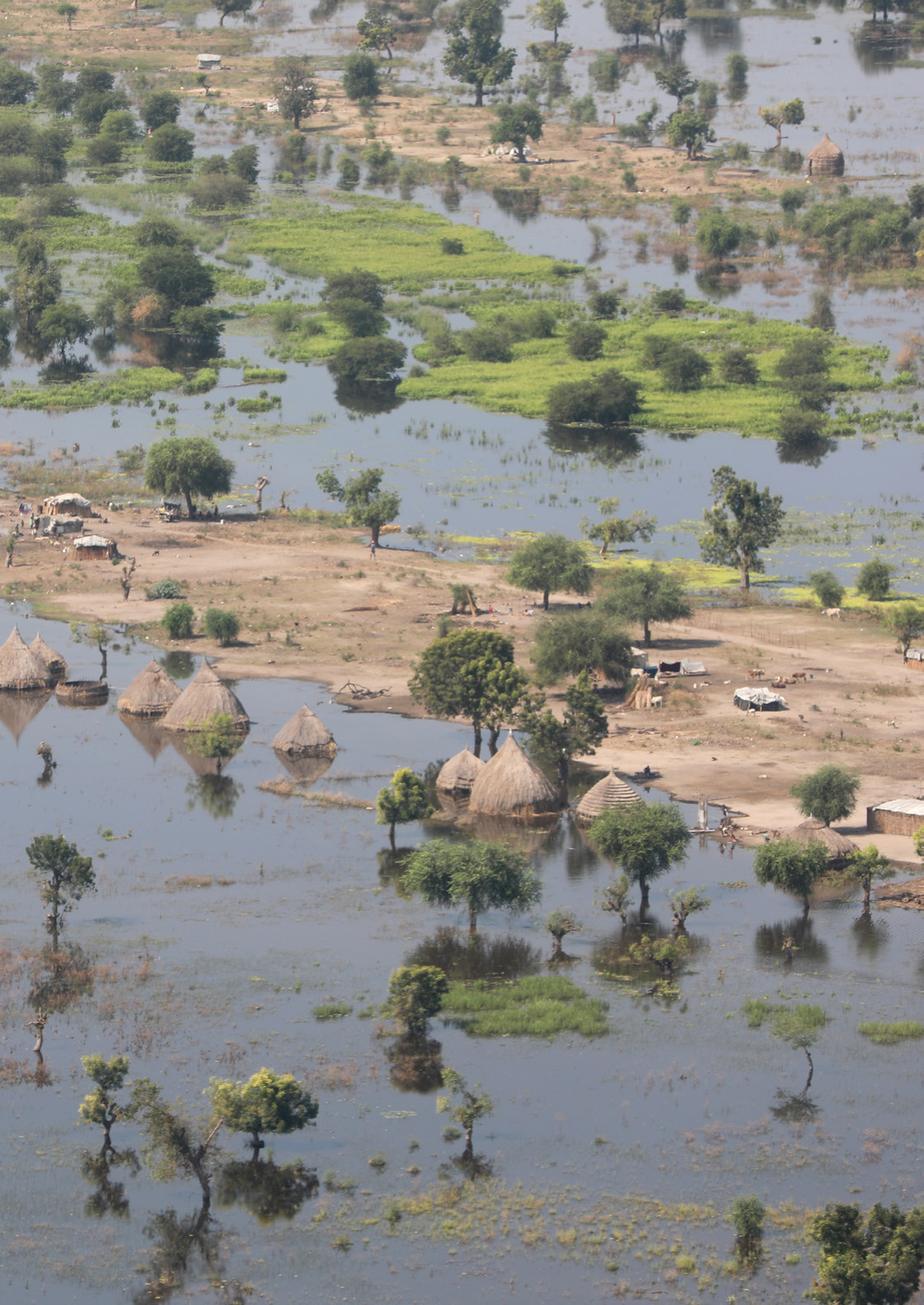A new analysis by PAX, with contributions from Utrecht University, demonstrates how severe flooding in South Sudan spawns environmental risks around its national oil infrastructure. The report uses satellite imagery and a hydrological model to identify how the increasing seasonal flood impacts can pose additional environmental health risks to civilians and their livelihoods from potential pollution sources.
The research focuses on oil fields in Unity and Upper-Nile State, regions that both have unique ecosystems such as the Sudd, the world’s largest wetlands facing growing pressure from oil exploration. Researchers have mapped all the oil extraction points, and mapped the flooding of the fields in 2021-2022, showing that in Unity State, a total of 533 out of 1352 oil wells – or roughly 40% – were flooded. Though most of the oil extraction points did not seem to be active, there remain risks of oil pollution from oil waste pits, unsafe storage of hazardous chemicals and risks of damage to oil pipelines. Additionally, research shows that flood occurrence has already increased at some of the oil fields in the last decades, both in dry and wet seasons.
Cascading Climate Effects
On a yearly basis, the heavy rains are getting more intense and variable, displacing close to a million people. The report reflects this as results suggest that flood occurrence has already increased for parts of South Sudan since 1990. Experts fear that floods will worsen, linking this with the climate crisis induced change of weather patterns. Beyond the direct humanitarian suffering, local communities fear that lax oversight and absence of proper environmental regulations results in unprotected oil waste pits, while past investigations have shown mismanagement of safe storage of hazardous chemicals used in the oil exploration process. The spread of those toxics with the cascade of waters during the flooding seasons can impact drinking water sources for nearby communities, their livestock and wider impact on ecosystems.
A Black Tide over Green Lands.
The wheeling and dealing around the environmental frameworks governing the lucrative fossil fuel industry in South Sudan has faced many challenges, as the country was plagued by wars and social unrest. Despite the creation of a national environmental law in 2012, the government still has not carried out a long-awaited environmental assessment of the oil fields that should provide insights into the risks and challenges around oil exploration. Meanwhile, there has been a range of incidents that resulted in oil spills, and limited research that has been conducted, shows growing pollution risks on surface and groundwater, including drinking water sources. Civil society groups and environmental activists have long protested the lack of response to these developments, while responsible oil companies still fail to provide transparency and accountability over environmental regulation to ensure rigorous safety standards and climate adaptation measures are implemented.
With this report, PAX aims to highlight the serious risks linked with climate-impacts on industrial activities in countries affected by wars and armed conflicts. This year, the COP28 of the UN Conference on Climate Change will take place in the United Arab Emirates where States will meet to discuss how to build effective policies to reduce CO2 emissions and develop global policies to address the impacts. Yet, the linkages between climate and conflict is still absent in discussions on loss and damage and on building climate resilient policies to minimize and mitigate climate impacts on conflict-affected areas. The findings of the report also underscore the need for the government of South Sudan and the international oil companies to address these challenges.




